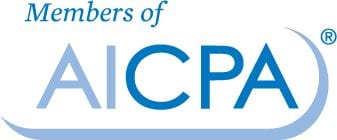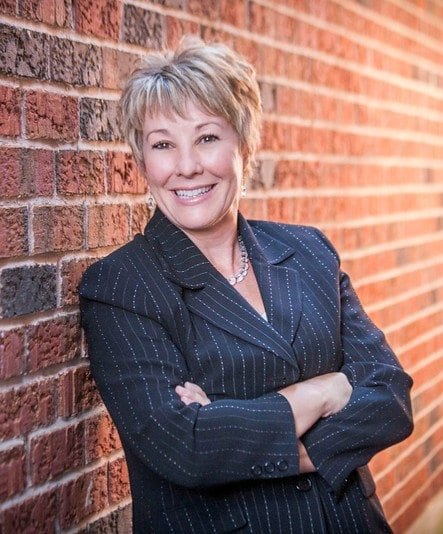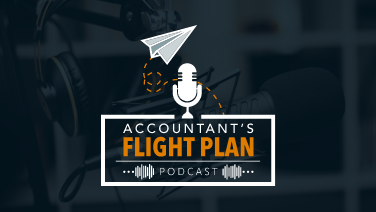
This is a revised copy of the article that first appeared in The Journal of Accountancy’s CPA Insider™ By Brannon Poe, CPA
Timing Your Exit from Your Accounting Firm
The most important decision CPA firm owners need to make when thinking about succession planning is when to bow out. It can be difficult, though, to know when to leave. Sometimes an outside event brings clarity: health problems, a spouse’s retirement, or the arrival of grandchildren.
But, in the absence of these major life events, owners need to decide when to exit without any outside influence. There are downsides to exiting too soon and too late.
Risks of CPA Firm Succession Too Soon
If the succession is too soon, the owner may find letting go of the practice difficult or even impossible. Exiting owners who are not ready to let go often end up micromanaging their successors, which damages the hand off. When owners have no concrete plans pulling them out of the practice, they may unknowingly sabotage their own transactions. Deals can suffer from “death by a thousand cuts” as they go through multiple rounds of changes and become needlessly complex.
Risks of CPA Firm Succession Too Late
Too late, and owners can experience burnout. Their energy for the business can gradually fade to the point where the practice isn’t growing or improving. Or, worse, the practice can go into decline as clients and staff begin to leave.
There are few factors to consider that can help you achieve the “Goldilocks zone” of timing.
Factors to Consider for Timing of CPA Succession
Money for Retirement
This is often the biggest consideration. CPAs are usually financially savvy and know when they have enough money to retire. That said, they should still take conservative projections of future earnings into account.
Post Retirement Plan
Ideally, know what you want to do after your exit and have something in mind that you are drawn toward such as volunteering, CFO work, another business opportunity, or fulfilling a long-held retirement dream. Having plans tends to “pull” you out of the practice and provide incredible clarity around your timing. It’s much easier to leave your career when there are other things that you really want to do.
If you’re not sure what you’ll do, consider part-time work. Surprisingly, in our experience, many CPAs underestimate their ability to find lucrative part-time opportunities outside of public accounting. A lengthy career in public practice can provide a variety of skills and wisdom that have significant value, which can lead to CFO roles and general business opportunities. These roles often let exiting owners work less without sacrificing all of their income. This option offers a nice step-down in responsibility and time commitment along with significant earning potential.
Total Transition Time
The length of the exit period will vary significantly from owner to owner and is influenced by many factors. If your purchase agreement includes an exit plan, then congratulations on the good planning! If not, initiate a partner discussion on this issue so you can draft an addendum to your agreement. Regardless of your agreement, the sooner you begin a conversation with all partners about your exit, the better. Partners often have significantly different exit timetables, which can create conflicting interests. Identify any conflicts early and solutions will be much easier to create.
Things to Consider for CPA Firm Transition Time
These are some of the most common considerations when determining your transition out of your CPA firm and hand off to the new owner.
Partnership or Shareholder Agreements
Ideally, your agreements will specify a clear path for exiting. Unfortunately, we’ve seen cases where firms did not have partnership agreements or these agreements did not address exit or buyout concerns. (In fact, an AICPA firm succession management survey found that only 63% of firms have a partner agreement.) In some of these instances, the lack of a prior agreement delayed the exit timetable of the partner who wanted to leave. Legal conflicts can take years to resolve.
Marketability of Your CPA Firm
The marketability of your firm will help you determine how long it is likely to take to sell. If you are considering a potential sale or merger of the practice, understand the key factors that drive the firm’s value (such as size, location, and profitability) and how much demand there might be for it. In some markets, practices will sell in a matter of weeks. In others, it may take years.
Accounting Firm’s Client Transition Needs
The time necessary to facilitate a successful client transition can vary quite a bit. Some transitions last a few weeks, while others occur over a couple of years. Our general recommendation when a practice is sold is to transition very quickly. Though it may seem counterintuitive, our experience has been that firms overwhelmingly do better when the hand off is swift.
The topic of client transition is a very complex one. To better understand how long your transition may take, please explore our post on high-level concepts behind successful transitions.
Time to Prepare CPA Firm Successor
Even if you’ve chosen a talented successor, be sure to be objective about all of the necessary capabilities that ownership requires. Make a realistic assessment of their skills and an estimate of how long it will take them to shore up any weaknesses before taking over. Also, be sure they have a strong desire to take over. We’ve seen owners spend years grooming successors only to learn that they don’t want the responsibility or aren’t willing to pay a reasonable price for the practice.
No matter which route you choose as your exit, our experiences have shown us that CPA practice owners that have clear goals for what they want to do after the exit are the happiest. If you are thinking about selling your CPA firm, Poe Group Advisors can help.
About Brannon Poe: Brannon is the founder of Poe Group Advisors and has been facilitating successful accounting practice transitions throughout the US and Canada since 2003. Brannon started his career in public accounting as an auditor with Ernst & Young before working for several years in auditing and tax preparation for the regional firm of Elliott, Davis & Company. He is the author of “Accountant’s Flight Plan: Best Practices for Today’s Firms” (published by the AICPA and CPA Canada), “On Your Own: How to Start Your Own CPA Firm,” as well as multiple blogs and the “Accountant’s Flight Plan” podcast.
Follow us on Twitter @PoeGroupAdvisor and LinkedIn







